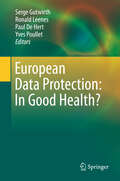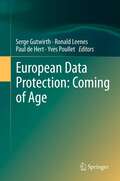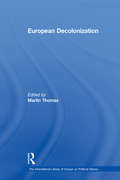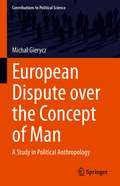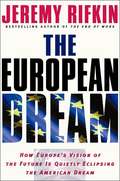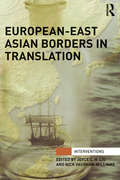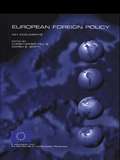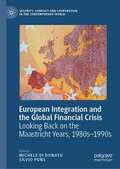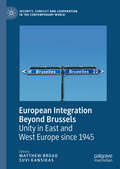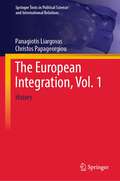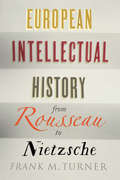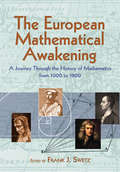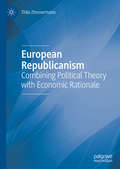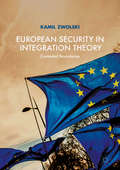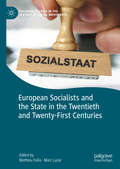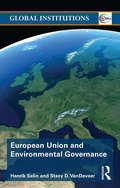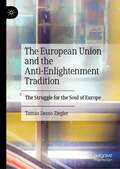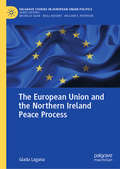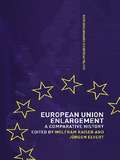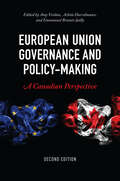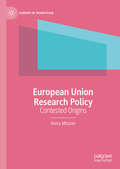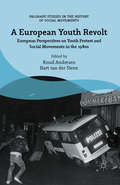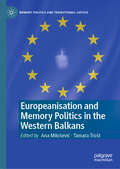- Table View
- List View
European Data Protection: In Good Health?
by Paul De Hert Yves Poullet Ronald Leenes Serge GutwirthAlthough Europe has a significant legal data protection framework, built up around EU Directive 95/46/EC and the Charter of Fundamental Rights, the question of whether data protection and its legal framework are 'in good health' is increasingly being posed. Advanced technologies raise fundamental issues regarding key concepts of data protection. Falling storage prices, increasing chips performance, the fact that technology is becoming increasingly embedded and ubiquitous, the convergence of technologies and other technological developments are broadening the scope and possibilities of applications rapidly. Society however, is also changing, affecting the privacy and data protection landscape. The 'demand' for free services, security, convenience, governance, etc, changes the mindsets of all the stakeholders involved. Privacy is being proclaimed dead or at least worthy of dying by the captains of industry; governments and policy makers are having to manoeuvre between competing and incompatible aims; and citizens and customers are considered to be indifferent. In the year in which the plans for the revision of the Data Protection Directive will be revealed, the current volume brings together a number of chapters highlighting issues, describing and discussing practices, and offering conceptual analysis of core concepts within the domain of privacy and data protection. The book's first part focuses on surveillance, profiling and prediction; the second on regulation, enforcement, and security; and the third on some of the fundamental concepts in the area of privacy and data protection. Reading the various chapters it appears that the 'patient' needs to be cured of quite some weak spots, illnesses and malformations. European data protection is at a turning point and the new challenges are not only accentuating the existing flaws and the anticipated difficulties, but also, more positively, the merits and the need for strong and accurate data protection practices and rules in Europe, and elsewhere.
European Data Protection: Coming of Age
by Paul De Hert Yves Poullet Ronald Leenes Serge GutwirthOn 25 January 2012, the European Commission presented its long awaited new "Data protection package". With this proposal for a drastic revision of the data protection framework in Europe, it is fair to say that we are witnessing a rebirth of European data protection, and perhaps, its passage from an impulsive youth to a more mature state. Technology advances rapidly and mobile devices are significantly changing the landscape. Increasingly, we carry powerful, connected, devices, whose location and activities can be monitored by various stakeholders. Very powerful social network sites emerged in the first half of last decade, processing personal data of many millions of users. Updating the regulatory network was imminent and the presentation of the new package will initiate a period of intense debate in which the proposals will be thoroughly commented upon and criticized, and numerous amendments will undoubtedly be proposed. This volume brings together some 19 chapters offering conceptual analyses, highlighting issues, proposing solutions, and discussing practices regarding privacy and data protection. In the first part of the book, conceptual analyses of concepts such as privacy and anonymity are provided. The second section focuses on the contrasted positions of digital natives and ageing users in the information society. The third section provides four chapters on privacy by design, including discussions on roadmapping and concrete techniques. The fourth section is devoted to surveillance and profiling, with illustrations from the domain of smart metering, self-surveillance and the benefits and risks of profiling. The book concludes with case studies pertaining to communicating privacy in organisations, the fate of a data protection supervisor in one of the EU member states and data protection in social network sites and online media. This volume brings together some 19 chapters offering conceptual analyses, highlighting issues, proposing solutions, and discussing practices regarding privacy and data protection. In the first part of the book, conceptual analyses of concepts such as privacy and anonymity are provided. The second section focuses on the contrasted positions of digital natives and ageing users in the information society. The third section provides four chapters on privacy by design, including discussions on roadmapping and concrete techniques. The fourth section is devoted to surveillance and profiling, with illustrations from the domain of smart metering, self-surveillance and the benefits and risks of profiling. The book concludes with case studies pertaining to communicating privacy in organisations, the fate of a data protection supervisor in one of the EU member states and data protection in social network sites and online media.
European Decolonization (The International Library of Essays on Political History)
by Martin ThomasThis collection brings together twenty-one key articles that explore the nature and impact of colonial withdrawal. Ranging across all the European colonial powers, the articles discuss various aspects of decolonization, including the role of political violence, changing popular attitudes to empire and the inter-actions between colonial conflict and Cold War.
European Dispute over the Concept of Man: A Study in Political Anthropology (Contributions to Political Science)
by Michał GieryczThe book represents original research in a field of study rarely pursued while analysing the intellectual dimensions of disputes over ethically sensitive issues that occur in European Union politics. These disputes are generally analysed at ideological, ethical, economic and interstate levels. However, these references do not suffice in understanding the issue, which is related to a divergent perception of the essence of humanity and thus the subject matter of anthropology. The main research objective of the monograph is therefore to reconstruct the sources and the specific European Union way of thinking about the human being. Methodologically, the book expands the understanding of political anthropology within political science and presents a range of suitable instruments for pursuing anthropological research. At the theoretical level, it proposes an anthropological typology of the main currents of European political thought and reveals their prominence for the anthropological orientation of the EU's axiology. Empirically, it provides an analysis of the anthropological features of European Union institutions and policies in addition to discussing the relation between the axiological and anthropological positions of the main political and national groups within the EU.
The European Dream: How Europe's Vision of the Future Is Quietly Eclipsing the American Dream
by Jeremy RifkinAmericans "live to work" while Europeans "work to live," and Rifkin demonstrates statistically and anecdotally that Europe's humane approach to capitalism makes for a healthier, better-educated populace.
European-East Asian Borders in Translation (Interventions)
by Nick Vaughan-Williams Joyce C.H. LiuEuropean-East Asian Borders is an international, trans-disciplinary volume that breaks new ground in the study of borders and bordering practices in global politics. It explores the insights and limitations of border theory developed primarily in the European context to a range of historical and contemporary border-related issues and phenomena in East Asia. The essays presented here question, rather than assume, the various borders between inclusion/exclusion, here/there, us/them, that condition the (im)possibility of translating between histories, cultures and identities. Contributors suggest that the act of translation offers new ways of thinking about how border logics operate, taking on the concept of translation itself as border problematic and therefore raising questions of power and authority, such as who gets to act as a translator, or who benefits from the outcome. The book will appeal not only to upper-level students and scholars with a geopolitical-historical interest in East Asia, but also to those who work in the inter-disciplinary field of border studies and others with an interest more generally in translation and the extent to which theory ‘travels’ across time and space.
European Existentialism
by Nina LangiulliEuropean Existentialism is a rich collection of major texts and is made all the more significant by the range and depth of its contributions. This book aims to give greater intelligibility to existentialism by providing samples from antecedents of and influences upon it. Although existentialism is regarded as an example of twentieth-century philosophizing, the book presents nineteenth-century thinkers such as Kierkegaard and Nietzsche as its forerunners. Thinkers, such as Dilthey, Husserl, and Scheler, frequently associated with other trends hi philosophy, such as historicism and phenomenology, are included because of their influence upon existentialism. Informative biographies of each author represented are also included.European Existentialism includes a broad range of philosophers working in the existentialist mode not only French and German, but also Spanish, Italian, Jewish, and Russian philosophers. This volume is also distinctive in that it omits existentialists from the literary world. While Dostoevsky is often included in other existentialist collections, Langiulli represents Russian philosophy with a selection by Berdyaev. In his new introduction, Langiulli discusses how the themes of existentialism have led to contemporary aberrations. He uses the language of political rights as an example; whereas we once referred to "freedom of speech," we have transformed that phrase into a much wider category, "freedom of expression."Langiulli also examines various trends that have derived from existentialism: postmodernism, deconstructionism, and multiculturalism. Langiulli's introduction and the contributions place existentialism as a genuine tradition in the history of philosophy. European Existentialism is an invaluable collection for philosophers, educators, and all those interested in the existentialist tradition.
European Foreign Policy: Key Documents
by Christopher Hill Karen E. SmithThis book is the very first to collect together the key official documents tracing the development of European foreign policy from the end of the Second World War to the present day. It contains: *all important documents on European foreign policy from 1948 to the Kosovo crisis *material from major treaties such as The North Atlantic treaty, the treaty of Rome and the treaty of Amsterdam *European responses to major world events such as the Middle East peace process, the Falklands war and the Balkans crisis *detailed commentary and analysis of the documents providing a valuable political and historical context *many documents which are extremely difficult to obtain elsewhere. The unparalleled coverage makes this book an essential primary source for all those interested in European politics and International Relations.
European Integration and the Global Financial Crisis: Looking Back on the Maastricht Years, 1980s–1990s (Security, Conflict and Cooperation in the Contemporary World)
by Michele Di Donato Silvio PonsOffering a fresh take on a crucial phase of European history, this book explores the years between the 1980s and 1990s when the European Union took shape. Whilst contributing to existing literature on the Maastricht Treaty and European integration at the end of the twentieth century, the book also brings those debates into the twenty-first century and makes connections with longer-term issues. The transformation of the European political climate in the wake of the global financial crisis in 2008, and the watershed Brexit vote in 2016, has made it all the more urgent to reconsider the way scholars and opinion-makers have looked at European integration in the past. Drawing from recently released archival documents, the authors analyse European cooperation as part of the broader international history in which it unfolded, taking into account the changes in the Cold War order and the advance of a new phase of globalisation. Comparing and contrasting the debates, objectives and achievements of the 1980s and 1990s with the current political landscape of the European Union, this book proposes a novel interpretation of the choices that were made during the Maastricht years, and of their longer-term consequences.
European Integration Beyond Brussels: Unity in East and West Europe Since 1945 (Security, Conflict and Cooperation in the Contemporary World)
by Matthew Broad Suvi KansikasEurope is a continent whose history has, in one form or another, long been dominated by integration. And yet the European integration process is often treated as synonymous with the evolution of just one particular, and until recently geographically quite limited, Western-centred organisation: the European Union (EU). This trend obscures the multitude of ways European states have acted collectively on both sides of the Iron Curtain – and continue to do so throughout the continent today. With contributors drawn from history and political science, this book explores some of these diverse integration efforts ‘beyond Brussels’. We shine a light on international organisations, trade frameworks, and various political, social, scientific and cultural forms of unity in both Eastern and Western Europe. In so doing, the book seeks to redefine the history of the European integration process not only as a less purely EU-centric phenomenon but as a less strictly Western European one too.
The European Integration, Vol. 1: History (Springer Texts in Political Science and International Relations)
by Panagiotis Liargovas Christos PapageorgiouThis two-volume textbook teaches about the uniqueness and the difficulty of the European unification project. It describes, as clearly as possible, what Robert Schuman declared in 1950, that "... Europe will not be made all at once…". Navigating the nexus of four academic fields - political science, institutional analysis, economics, and history - the book serves as a reference work for accurate, exhaustive, and well-researched information on the creation and functioning of the European Union. Supported by numerous photographs, diagrams, maps, and sources, volume 1 sets out in a concise and readable way the European historical origins, the important steps in the creation of the European Union, and the treaties and historical events that have marked its course so far. Providing a comprehensive picture of the unification process and the functioning of this sui generis edifice of a united Europe, the book will serve as an essential textbook for undergraduate and graduate students studying the subject of European integration, as well as a useful resource for a broader audience interested in the European integration process.
European Intellectual History from Rousseau to Nietzsche
by Frank M. Turner Richard A. LofthouseOne of the most distinguished cultural and intellectual historians of our time, Frank Turner taught a landmark Yale University lecture course on European intellectual history that drew scores of students over many years. His lectures--lucid, accessible, beautifully written, and delivered with a notable lack of jargon--distilled modern European history from the Enlightenment to the dawn of the twentieth century and conveyed the turbulence of a rapidly changing era in European history through its ideas and leading figures Richard A. Lofthouse, one of Turner's former students, has now edited the lectures into a single volume that outlines the thoughts of a great historian on the forging of modern European ideas. Moreover, it offers a fine example of how intellectual history should be taught: rooted firmly in historical and biographical evidence.
The European Mathematical Awakening: A Journey Through the History of Mathematics from 1000 to 1800
by Frank J. SwetzAbsorbing and entertaining, these thirty-two articles by distinguished educators offer a reader-friendly introduction to the history of mathematics. The newly corrected and updated essays cover eight centuries of discoveries, ranging from the medieval practice of finger calculus to the pioneering work of Leonhard Euler.Fascinating topics include the geometry behind the windows of Gothic churches, the development of complex numbers, the evolution of algebraic symbolism, and mathematical considerations on the trajectory of a cannon ball. Profiles of historic figures include Leonardo Fibonacci, Johannes Kepler, Isaac Newton, Galileo, the Bernoulli family, and other well- and less-known personalities, including mathematicians of the French Revolution and women in mathematics. Suitable for readers with no background in mathematics, this volume offers an excellent guide for high school students and college undergraduates as well as anyone with an interest in the history of mathematics.
European Republicanism: Combining Political Theory with Economic Rationale
by Thilo ZimmermannThis book presents current theories of European integration, such as federalism, neo-functionalism and liberal intergovernmentalism with their strengths and weaknesses. It is then argued that the combination of republican theory with public good theory, the res publica of public goods, could better explain European integration. Public good theory has, however, to be adopted in order to make it applicable to European republicanism. Finally, the book demonstrates how this new framework can influence further academic debates, such as on sovereignty and monetary integration, externalities of a common European market and the driving force of European integration. It is maintained that as the republican approach does not follow a pure economic logic, there remains space for political considerations and motivations.In this topical and interdisciplinary book, the author combines many important strings of European integration theory, history, economics and political sciences, which are clearly brought together into a coherent analytical discourse. Its strength is the interdisciplinary interaction between politics and economics, as well as theoretical and practical issues which are of high relevance for public debate in Europe. This book will be of interest to scholars and students interested in economic integration, as well as history and political philosophy.
European Security in Integration Theory: Contested Boundaries
by Kamil ZwolskiThis book examines federalism and functionalism – two fundamental, yet largely forgotten, theories of international integration. Following the recent outbreak of the war in Ukraine, policy practitioners and scholars have been in search of a deeper understanding of the likely causes of the conflict and its consequences for the European security architecture. Various theories have been deployed to this end, but international and European integration theory remains conspicuously absent. The author shows how the core tenets of integration theories developed after World War I, particularly how they viewed territoriality and geopolitical boundaries, remain as relevant today as they were almost 100 years ago.
European Socialists and the State in the Twentieth and Twenty-First Centuries (Palgrave Studies in the History of Social Movements)
by Mathieu Fulla Marc LazarThis edited volume promotes a comparative and transnational approach to the complex and ambiguous relationship between West European socialism and the contemporary state over the longue durée. It encourages a better understanding of socialism while also casting an original light on the history of the contemporary state in Europe. Socialists have been a prime political force since the late nineteenth century through to the present. Through their strength, their presence at the heart of societies, their dynamism, inventiveness, and influence, they have left their mark on the European physiognomy and helped to forge part of its identity. This is particularly true where the welfare state is concerned, and the role played by the state in constructing, embedding, and extending this social model. Surprisingly, there has been no research aiming to systematically analyse the relationship between socialism and the state. This volume fills a gap in knowledge by rejecting the media simplification and political polemic maintained by opponents of socialism – and sometimes by socialists themselves – which systematically links socialism with “statism”. It focuses on numerous case studies involving France, Italy, Spain, Greece, Austria, Germany, Belgium, the United Kingdom and Scandinavia, and highlights the diversity of organisations within European socialism. Ultimately, this book demonstrates that the fate of this political culture depends on the socialist parties themselves but also on any new configurations that states may assume. Conversely, the future of states will also depend partly on the choices made by socialists, if they still exist and still have the means to shape decisions and make their voices heard.
European Union and Environmental Governance (Global Institutions)
by Henrik Selin Stacy D. VanDeveerOver the past five decades, the European Union (EU) has developed into the most legally and politically authoritative regional organization in the world, wielding significant influence across a wide range of issue areas. European Union and Environmental Governance focuses on the growing global role of EU environmental and sustainable development policies. Written in a concise and accessible manner, this book introduces and examines the major European and global environmental issues, debates, and policies and provides a critical, evidence-based evaluation of the achievements and shortcomings to date in EU environmental and sustainability governance. Providing both an historical overview and a discussion of the major future legal, political and economic challenges to the realization of EU goals related to better environmental governance, the authors offer a comprehensive introduction to this key issue. This book will be useful reading for students of global environmental politics, comparative environmental politics and policy, international organizations, European politics, and environmental studies.
The European Union and the Anti-Enlightenment Tradition: The Struggle for the Soul of Europe
by Tamas Dezso ZieglerThis book analyses EU and Member State decision-making through a constructivist perspective and claims that a kind of latent, intellectual &“phantom war&” is going on in Western societies. This war is fought through social practices, political debates, and policy choices for and against the values and ideals of the Enlightenment. The book accurately describes how the values of the Enlightenment and a contrary tradition, the anti-Enlightenment tradition, shape and reshape law and public policy choices in Europe, both at the level of the European Union, and its member states. The hidden war among historical phantoms affects European integration, the values, practices, and policies (including the legal background) of democracy, and the rule of law in our societies. These traditions also affect how we think about humanism and universalism, so they affect EU policies on refugees and other migrants, the role of rationality in public decision-making, and the weakening and defense of checks and balances, only to mention some crucial examples.
The European Union and the Northern Ireland Peace Process (Palgrave Studies in European Union Politics)
by Giada LaganaThis book examines the economic and political contributions of the EU to the Northern Ireland peace process, tracing the genesis of EU involvement since 1979 and analysing how it acted as an arena in which to foster dialogue and positive cooperation. Based on extensive archival research and exclusive elite interviews this volume provides the first comprehensive study of how the EU contributed to the reconfiguration of Northern Ireland from a site of conflict to a site of conflict amelioration and peace-building. The book demonstrates that the relationship between Northern Ireland and the EU has been much more significant in the peace process than previously suggested.
European Union Enlargement: A Comparative History (Routledge Advances in European Politics #Vol. 18)
by Wolfram Kaiser Jürgen ElvertEuropean Union Enlargement provides a comparative analysis of the post-war European policies of those states that joined the European Union between 1973 and 1995.The volume draws upon new empirical research in order to investigate the policies that these 'newcomer' states have had towards Europe since 1945, with an emphasis on their experience of membership and its possible Europeanising effect. A final comparative chapter draws the national European policies of the 'newcomers' together and outlines what they have brought to the EU. The book also tests integration theories against the available evidence, demonstrating their limited explanatory value and the economic, political and cultural specificity of different national paths towards EU integration.
European Union Governance and Policy-Making, Second Edition: A Canadian Perspective
by Amy Verdun Achim Hurrelmann Emmanuel Brunet-JaillyEuropean Union Governance and Policy-Making introduces the politics of the European Union (EU) to a student audience. The book is explicitly written for students enrolled in universities in Canada, or other non-EU countries, and builds on their academic background. Chapters cover the political and legal system of the EU, theories of European integration, core EU policies such as the Single Market, its single currency, migration policy, EU enlargement, as well as pressing issues facing the further development of European integration. This second edition has been comprehensively revised and updated to include a discussion of Brexit, the European Green Deal, COVID-19, and the Russian invasion of Ukraine. Written by leading Canadian scholars in the field of European integration, as well as international experts with teaching experience in Canadian universities, this textbook leverages the comparison to Canada and its federal system to help students understand what is unique about the European Union.
European Union Research Policy: Contested Origins (Europe in Transition: The NYU European Studies Series)
by Veera MitznerThis book describes the emergence of research policy as a key competence of the European Union (EU). It shows how the European Community (EC, the predecessor of the EU), which initially had very limited legal competence in the field, progressively developed a solid policy framework presenting science and research as indispensable tools for European economic competitiveness and growth. In the late 20th century Western Europe, hungry for growth, concerned about the American technological lead, and keen to compete in the increasingly open international markets, the argument for a joint European effort in science and technology seemed plausible. However, the EC was building its new functions in an already crowded field of European research collaboration and in a shifting political context marked by austerity, national rivalries, new societal and environmental challenges, and emerging ambivalence about science. This book conveys the contested history of one of the EU’s most successful policies. It is a story of struggle and frustration but also of a great institutional and intellectual continuity. The ideational edifice for the EC/EU research policy that was put in place during the 1960s and 1970s years proved remarkably robust. Its durability enabled the rapid takeoff of the European Commission’s initiatives in the more favorable political atmosphere of the early 1980s and the subsequent expansion of the EU research funding instruments and programs that permanently transformed the European research landscape.
European Warfare, 1350-1750
by Frank Tallett D. J. B. TrimThe period 1350-1750 saw major developments in European warfare, which not only had a huge impact on the way wars were fought, but also are critical to long-standing controversies about state development, the global ascendancy of the West, and the nature of 'military revolutions' past and present. However, the military history of this period is usually written from either medieval or early-modern, and either Western or Eastern European, perspectives. These chronological and geographical limits have produced substantial confusion about how the conduct of war changed. The essays in this book provide a comprehensive overview of land and sea warfare across Europe throughout this period of momentous political, religious, technological, intellectual and military change. Written by leading experts in their fields, they not only summarise existing scholarship, but also present new findings and new ideas, shedding new light on the art of war, the rise of the state, and European expansion.
A European Youth Revolt: European Perspectives on Youth Protest and Social Movements in the 1980s (Palgrave Studies in the History of Social Movements)
by Bart van der SteenDuring the early 1980s, large parts of Europe were swept with riots and youth revolts. Radicalised young people occupied buildings and clashed with the police in cities such as Zurich, Berlin and Amsterdam, while in Great Britain and France, 'migrant' youths protested fiercely against their underprivileged position and police brutality. Was there a link between the youth revolts in different European cities, and if so, how were they connected and how did they influence each other? These questions are central in this volume. This book covers case studies from countries in both Eastern and Western Europe and focuses not only on political movements such as squatting, but also on political subcultures such as punk, as well as the interaction between them. In doing so, it is the first historical collection with a transnational and interdisciplinary perspective on youth, youth revolts and social movements in the 1980s.
Europeanisation and Memory Politics in the Western Balkans (Memory Politics and Transitional Justice)
by Ana Milošević Tamara TroštThis volume explores how the process of European integration has influenced collective memory in the countries of the Western Balkans. In the region, there is still no shared understanding of the causes (and consequences) of the Yugoslav wars. The conflicts of the 1990s but also of WWII and its aftermath have created “ethnically confined” memory cultures. As such, divergent interpretations of history continue to trigger confrontations between neighboring countries and hinder the creation of a joint EU perspective. In this volume, the authors examine how these “memory wars” impact the European dimension - by becoming a tool to either support or oppose Europeanisation. The contributors focus on how and why memory is renegotiated, exhibited, adjusted, or ignored in the Europeanisation process.
